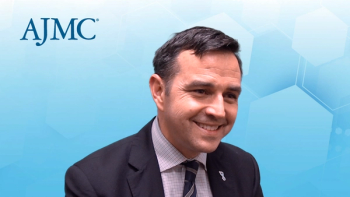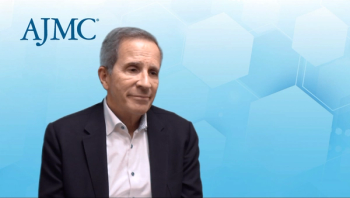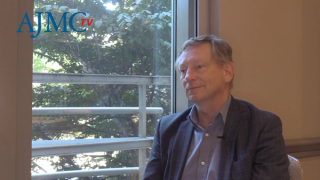
Oncology
Latest News
Latest Videos

CME Content
More News

Dax Kurbegov, MD, senior vice president of Sarah Cannon Cancer Network, discussed divides between payers, health systems, and oncology care providers, as well as the impacts these divides can have on patients.

Breakthrough research identifies TIM3 as a key target in MAPK-activated pediatric gliomas, offering new hope for more effective immunotherapy treatments.

Text messaging shows promise for assessing smoking status and identifying lung cancer screening eligibility, particularly among middle-aged, educated individuals with medium or high income. However, a multimodal approach is crucial for equitable implementation of such a program.

Patients with cancer who forego surgery have higher suicide incidence than those who undergo treatment, a study finds.

Advances in technology have made active surveillance in men with prostate cancer possible and prevented treatment for men who don’t need it, said Matthew Nielsen, MD, FACS, chair, Department of Urology, University of North Carolina School of Medicine.

Not all patients will want to take triplet therapy, but those with high-volume prostate cancer who are chemotherapy eligible are usually a good fit, explained Neal D. Shore, MD, FACS.

Thyme Care welcomes its new senior vice president to lead initiatives in value-based oncology care.

Social vulnerability and economic disadvantages exacerbate financial hardship in cancer survivors, according to one study.

Patients with cancer will never completely replace existing pain regimens, but cannabis could be used in conjunction, explained Marie Parish, PharmD, BCOP, a gastrointestinal oncology pharmacist with Mayo Clinic.

Spouses of patients with cancer face a significantly higher risk of suicide attempts and suicide death, especially within the first year of diagnosis, according to one study.

The newly approved treatment regimen demonstrated a significant reduction in recurrence risk in patients with resectable non–small cell lung cancer (NSCLC).

Andrew Hantel, MD, Dana-Farber Cancer Institute, discusses factors contributing to disparities in oncology clinical trial enrollment.

This commentary explores how 2 recently published studies evaluating the clinical benefit of the FDA’s accelerated approval program for oncology drugs came to different conclusions.

Relapsed or refractory cutaneous t-cell lymphoma can be treated in adults with the new FDA approval of denileukin diftitox immunotherapy.

Vorasidenib becomes the first targeted therapy for grade 2 isocitrate dehydrogenase (IDH)–mutant glioma to receive FDA approval.

The COVID-19 pandemic disrupted breast cancer screenings, leading to decreased follow-up rates and widening health disparities.

Patients with endometriosis have a 4.2-fold greater ovarian cancer risk, highlighting the need for further research into the biological links between endometriosis subtypes and ovarian cancer.

Visceral pleural invasion of non–small cell lung cancer (NSCLC) was investigated in this analysis for its potential to predispose patients to worse survival outcomes and greater chances of disease recurrence.

Amit Singal, MD, medical director of the Liver Tumor Program and chief of hepatology at UT Southwestern Medical Center, discusses his research on disparities in hepatocellular carcinoma care in the US.

The risk of early-onset breast cancer, particularly luminal A and triple-negative subtypes, was higher in Black women with obesity and high leptin levels compared with White women. This research highlights the urgent need for targeted interventions to address racial disparities in breast cancer outcomes.

A study demonstrates the value of incorporating protein signatures in creating more advanced prediction tools for patient outcomes.

Should the FDA require that new trial design proposals for perioperative regimens for resectable non–small cell lung cancer (NSCLC) include adequate within trial assessment?

Crystal S. Denlinger, MD, FACP, CEO of the National Comprehensive Cancer Network, discusses possible federal policies to help mitigate ongoing and future cancer drug shortages.

Despite numerous trials, breast cancer immunotherapies have had a modest clinical impact, with only 2 approved drugs, highlighting inefficiencies in the clinical trial system.

Artificial intelligence (AI) models have potential to help clinicians assess risk in patients with hepatocellular carcinoma (HCC) to inform disease management, a new study found.

















